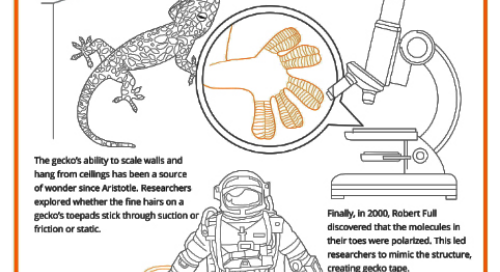careering-to-success-how-societies-can-improve-their-career-support-service-to-members-and-why-that-matters
August 18, 2021
Career development, especially in academia, is never easy. What do we mean by ‘careers’, though? It’s a combination of learning and development, certification, and education programs. Some might consider advancing their careers by having access to the right opportunities, securing tenure, or finding appropriate training and development resources. We know how important career success is to members, which is why every year the Wiley Society Member Survey looks at how societies are helping their members with career development, and how satisfied members are with their society’s offerings. Although there are many positive takeaways from our survey, there’s still a consensus that societies can do better. We’re here to share our findings with you, and highlight the many opportunities societies have to improve their services. Here’s what we’ve learned.
Careers come first
Over the course of the seven Wiley Society Member Surveys, we’ve learned that there are three main drivers of society membership: Content, community, and careers. Content was always the front runner, but this year we’ve seen careers increase in prominence and become arguably the leading reason for membership. This wasn’t all that surprising to hear from academics because it aligns with what we’ve also been hearing from practitioner and professional societies. It’s fair to assume that the decreasing importance of community as a driver isn’t necessarily do with ‘community’, but more to do with difficulties around networking, in-person meetings, and communication over the last 12 to 18 months. Future surveys may confirm this, but in the meantime, it’s clear that right now careers are crucial to society membership.
44% of responders across all disciplines told us they were satisfied with the level of support for promoting members’ careers, but this has been falling year on year. We suggest that a strong careers support service paired with publishing ethics and a clear society mission will not only win over new members but will better engage the members you’ve already got.
Recognize the challenge, and make a change
There are challenges when it comes to career support. 15% of those who left a society in the past 12 months did so because of a lack of support for career advancement. It was the second most significant reason after ‘lack of professional value’, and also resulted in a shockingly low Net Promoter Score (NPS) of -30. This lack of career support was felt most strongly in Europe and the US. Profession-wise, it was felt the strongest amongst those who work in corporations (37%), research institutions, and hospitals. Members in the disciplines of nursing, agricultural science and the humanities also agreed with the lack of support. If poor career support can prompt members to leave, then the opposite is also true and high-quality career support can drive membership growth. 71% said they would be more likely to join a society that provided helpful career development resources and 70% indicated they would join for help in advancing their career. So, there are changes that societies can and should make.
Career services take-up
It’s interesting to point out that the uptake of career support services is in most cases low: Only 7% utilized a society’s career service option. However, even if they are not always used, 69% still say it’s important that societies offer career support. Nonetheless, for those who have used taken advantage of such offering, career services are universally looked at as important and societies should definitely consider some sort of service.
83% valued the learning and development services, such as skills for career advancement, mostly for those in business, finance and accounting, and engineering. 57% were positive about career path tools, and 52% valued diversity initiatives and companies who are committed to having a more diverse workforce. Respondents in Asia Pacific and Central Asia were more likely to be in favour of these development services than those members in the US, which could be a lesson for societies based there to up their communication outreach and benefits. Simply put, the survey suggests that by increasing career services, higher approval, recommendation, and membership satisfaction rates will automatically follow.
The rules of engagement
Career support services are a major source of society engagement, especially when it comes to gaining certifications and credentials. For those who used the society career service option, 84% said that certification and credentialing were important or very important and 75% said that it was important that that societies should provide that support. This was most important to early career researchers (ECR’s) with under 5 years experience, those in Africa and Central Asia, and those who work at a hospital or in healthcare or research institute. While it might not surprising that career support services are most used and valued by ECRs and those who have recently joined a society, societies should find out why older and more experienced members aren’t participating – and if it even matters. If it does matter, ask questions to boost engagement with career offerings. What type of support are older members seeking?
The future is open
We know from past surveys that open data is important to members, with 53% telling us this year that it is more important than it was 12 months ago. In this year’s survey we’ve also seen a clear link between open data and other valuable society benefits. Across the survey, a positive career support service should be paired with open attitudes to research, a strong support for publishing ethics, and a positive mission that members can relate to. For example, those whose society offered open access on all journals and those members who felt that the importance of open data had increased in the last 12 months were also the most enthusiastic about career development services. Many members were willing to join multiple societies in order to access as many career support options as possible. 26% of those who belong to more than 6 societies attended a career networking event and are twice as likely to use a society career service.
It’s obvious that not all members will share the same set of values. However, those that do are extremely important for a society’s approval, recommendation, and longevity. Make sure you’re making these members happy so they’ll stick around, and maybe even recruit others.








